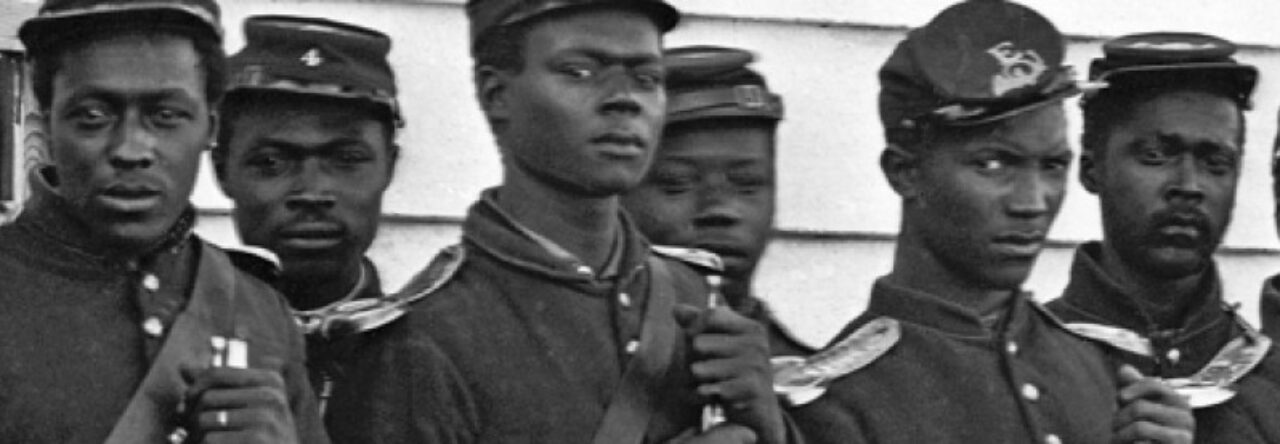As Matt was talking this morning during the introductory portion of the lecture, he showed the Dickinson’s “House Divided” site that we could use in the future as resources for our classes. I was especially intrigued by the page that showed the different people involved in the Harpers Ferry Raid with said images hyperlinked to other information. I was immediately excited to dig deeper into these sites, and began to consider the possibilities with my students – and how to get them into the depths of this site.
This line of thought led me to consider how to get my students to dig into sites like this on their own and not just go to Wikipedia or the first site offered by Google when they do research. How do I urge my students to really search when they do research? Being the history nerd that I am, I have always naturally been intrigued by obscure sources – especially primary sources. Before the internet became the “go to” in research, I would spend hours in the library looking through the stacks for the book that would perfectly support or refute my claims.
Yet, once again I return to my question, how do I urge my students to really search when they do research? I have a classroom blog of my own that I use, and have in the past posted lists that I created of trustworthy websites that students could/should use when doing research in various topics. This has worked in getting them to go beyond Wikipedia/Google, however, upon reflection, I feel like I have to be intentional in making my students do more. They still tend to just go the sites that I’ve provided instead of using them as a jumping off point. Better than just Wikipedia, but not great.
That will be one of my challenge this next school year – creating lessons that force students to use and explore more websites that have meaningful information. There are so many amazing sites like the ones the Matt showed us this morning and the incredible resources that the Lance showed us that the Gilder Lehrman supports. 

Jodi
One of the things that really caught my attention was when Matt emphasized that we need to teach students to do “research” on the internet, not “searches.” I have also had the problem of getting students to dig deeper. I have had some luck comparing it to an archeological dig or a CSI case – the challenge is to find that hidden artifact that everyone else missed. I teach an online state history course for a local university. I am going to set up a Wiki with a few examples of primary sources then assign the students the challenge of each adding 3 more primary sources with no dittos allowed!
vannabbott
I have chosen to embrace Wikipedia as a tool that my students will use. Students cannot cite Wikipedia as a source, but I inform them that this site can be a jumping off point on topics they are not familiar with, and with middle schools, they are not familiar with a lot, anyway, at the bottom of the Wikipedia page is the reference section and that is where I tell them that the research begins. The listing of primary and secondary sources is a foundation where they can begin their research. I also provide the links to sight for them to gather information, or they will spend so much time searching that they are not accomplishing the task of researching.
davemcintire
I do the same thing with wikipedia. I also give them a list of site suggestions and then reward a student who finds a suitable site not already on the list.
marionbroglie
I enjoyed your post and quoted you in mine (not published yet). I, too, struggle with my failure to motivate my students to conduct serious research. My one suggestion that I use with my middle school students is to direct them to specific sources. This takes the search out of the research, but I always remind myself that they are just in middle school. And while I will give them specific sources and sometimes passages, they don’t always comprehend the information as presented. Often, their reading ability is too low to be able to understand the point the author is trying to make. I have not figured out a solution, but I continue to try to teach them the basics of research.
Beth
I agree with you Marion on all counts. I have found that providing them with the specific sources is the most effective way to get them to consider specific points of view that I want them to consider, and not waste time in the gathering stage – where some of them will remain forever, and yes, there are definitely those who have low reading ability who will never get to the analysis stage without my assistance. At times I have put together folders of documents that I too have pre-selected, edited & culled into passages – all with the appropriate documentation. I’ve felt that if I want them to do the hard work of higher order thinking (such as assessing constitutional legality related to specific historical events) that it is worth it for me to do the pre-work. Good point on remembering that they are just middle school students. I guess I want to make sure that I’m pushing those who have the ability to do the serious research, and not allow them to get lazy.
(& on a personal note – nice running into you in this Gilder Lehrman group, after last year’s GL time @ Mt. Vernon!)